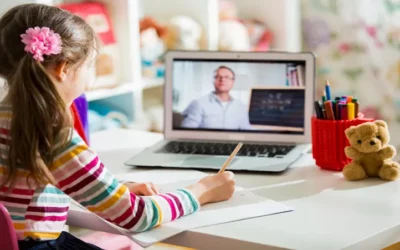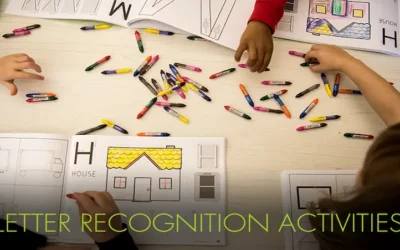Fun games for kids are not just a source of entertainment but also a valuable tool for their overall development. Engaging and educational activities provide children with an enjoyable way to learn important skills, foster creativity, and develop social bonds. Whether it’s through indoor games that stimulate cognitive abilities or outdoor games that promote physical fitness and teamwork, these activities play a crucial role in shaping a child’s growth and providing them with a well-rounded and fulfilling childhood experience.
Table of contents
Introduction
Games are an important part of childhood. They provide kids with opportunities to learn, grow, and have fun. There are many different types of games that kids can play, and each type of game has its own benefits.

Some of the benefits of playing games include:
- Learning. Games can help kids learn new skills, such as problem-solving, cooperation, and sportsmanship. They can also help kids learn about different topics, such as math, science, and history.
- Growth. Games can help kids develop their physical, mental, and emotional skills. They can also help kids learn how to deal with challenges and setbacks.
- Fun. Games are simply fun! They can help kids relax and de-stress. They can also help kids bond with their friends and family.
When choosing games for kids, it is important to consider their age, interests, and skill level. It is also important to make sure that the games are safe and appropriate for kids.
Games can be a great way for kids to learn, grow, and have fun. They can also help kids bond with their friends and family. By choosing the right games and playing them in a safe and appropriate way, parents can help their kids get the most out of playing games.
Age-Appropriate Games
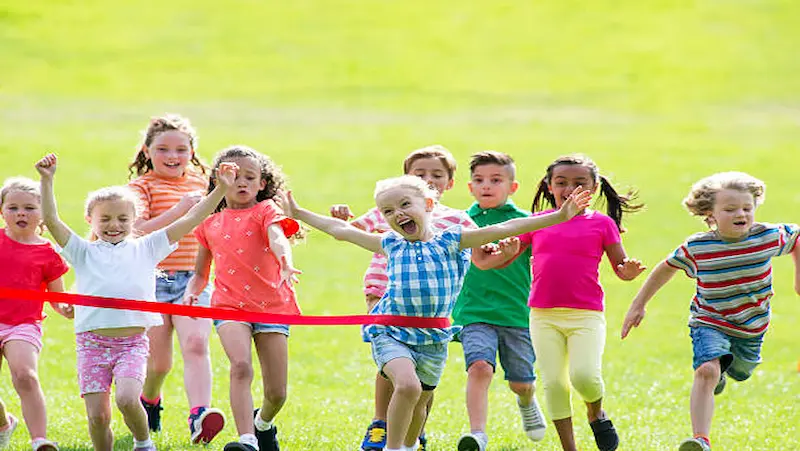
Age-appropriate games are essential for children’s development and enjoyment.
Here are some age-appropriate games for toddlers, preschoolers, and elementary school kids, along with brief descriptions and the skills they help develop.
Toddlers
- Peek-a-boo: This classic game is a great way for toddlers to develop their object permanence skills, which is the understanding that objects still exist even when they can’t be seen.
- Pat-a-cake: This simple game helps toddlers develop their motor skills and hand-eye coordination.
- Simon Says: This game helps toddlers learn to follow directions and pay attention.
- Red Light, Green Light: This game helps toddlers learn to follow rules and control their impulses.
- Duck, Duck, Goose: This game helps toddlers develop their gross motor skills and balance.
- Ball Toss: This game helps toddlers develop their throwing and catching skills.
- Musical Chairs: This game helps toddlers learn to take turns and deal with disappointment.
Preschoolers
- Hide-and-seek: This classic game helps preschoolers develop their spatial awareness and problem-solving skills.
- Tag: This simple game helps preschoolers develop their gross motor skills and coordination.
- Simon Says with Movement: This variation of the classic game helps preschoolers learn new body movements and improve their coordination.
- Follow the Leader: This game helps preschoolers learn to follow directions and work together as a team.
- Freeze Dance: This game helps preschoolers learn to control their bodies and express themselves creatively.
Elementary School Kids
- Beanbag Toss: This game helps elementary school kids develop their hand-eye coordination and accuracy.
- Horseshoes: This game is a great way for elementary school kids to learn about teamwork and strategy.
- Ultimate Frisbee: This game is a great way for elementary school kids to get exercise and have fun.
These are just a few ideas for age-appropriate games that can help kids learn and have fun. With a little creativity, you can come up with many more.
Learning Through Play
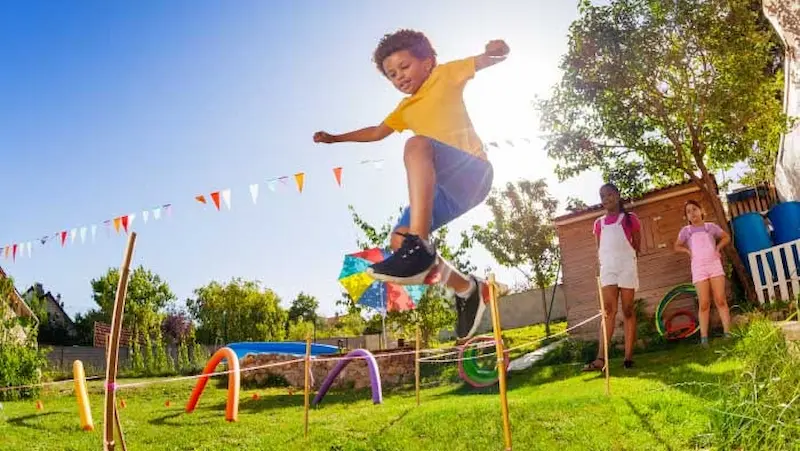
Play is an essential part of childhood. It’s how children learn about the world around them, develop their social and emotional skills, and build confidence. But did you know that play can also be educational?
Games can be a great way for children to learn new skills, practice old ones, and explore different concepts. They can also help children develop problem-solving, creativity, and critical thinking skills.
BrightChamps provides coding games for kids that promote Learning Through Play, fostering creativity and problem-solving skills in a fun and interactive way. Join us to discover a world of endless possibilities where learning and gaming seamlessly come together!
Here are some specific games that focus on various skills:
- Problem-solving games: These games help children learn to think critically and find creative solutions to problems. Some examples include puzzles, mazes, and board games like Monopoly and Clue.
- Creativity games: These games encourage children to use their imagination and come up with new ideas. Some examples include arts and crafts activities, dress-up, and playing pretend.
- Critical thinking games: These games help children learn to evaluate information and make decisions. Some examples include card games like War and Go Fish, and word games like Boggle and Scrabble.
In addition to playing specific games, there are also other ways to incorporate educational elements into playtime. Here are a few tips for parents:
- Ask questions: When children are playing, ask them questions about what they’re doing. This will help them to think about their actions and learn new things.
- Provide challenges: Don’t be afraid to challenge your children. This will help them to develop their problem-solving skills.
- Be a role model: Children learn by watching the adults in their lives. So be sure to model the behaviors that you want to see in your children.
Learning through play is a great way for children to develop the skills they need to succeed in school and in life. By following these tips, you can help your children to have fun and learn at the same time.
Here are some additional benefits of learning through play:
- Increased social skills: Play helps children learn to interact with others, share, take turns, and cooperate.
- Improved motor skills: Play helps children develop their fine and gross motor skills.
- Enhanced emotional development: Play helps children learn to express their emotions in a healthy way.
- Increased self-esteem: Play helps children build confidence and self-esteem.
So next time you’re looking for something to do with your child, don’t forget about the power of play!
Indoor and Outdoor Games
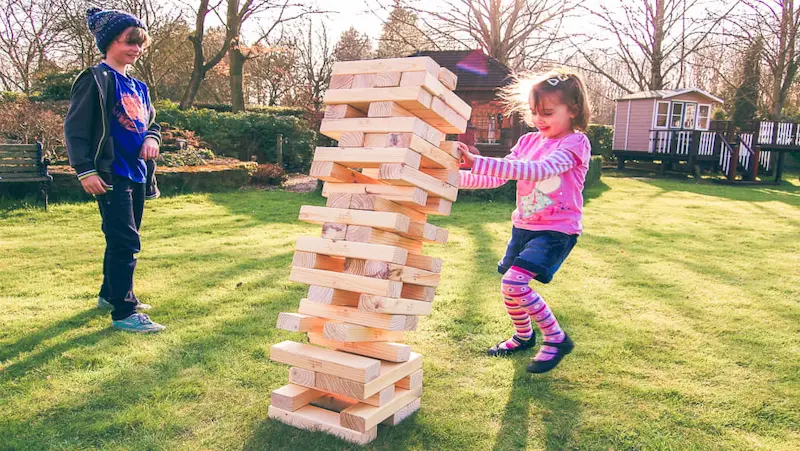
Indoor games like puzzles, board games, and charades promote cognitive skills, critical thinking, and social interaction. They enhance problem-solving abilities and creativity. Outdoor games like tag, soccer, and hide-and-seek provide physical exercise, improve motor skills, and encourage teamwork. They also foster socialization, resilience, and a connection with nature. Both types of games contribute to holistic child development.
Indoor games are a great way to stay entertained and have fun on a rainy day or when you just don’t feel like going outside. There are many different types of indoor games to choose from, so you can find one that is perfect for your interests and skill level.
Board games are a classic type of indoor game that can be enjoyed by people of all ages. There are many different types of board games available, from simple children’s games to complex strategy games. Some popular board games include Monopoly, Scrabble, and Clue.
Card games are another popular type of indoor game. There are many different types of card games, from simple games like War to more complex games like Bridge. Some popular card games include Uno, Go Fish, and Poker.
Puzzles are a great way to relax and de-stress. There are many different types of puzzles available, from simple jigsaw puzzles to more complex 3D puzzles. Puzzles can be enjoyed by people of all ages, and they can be a great way to spend time with family and friends.
Building blocks: Building blocks are a great way for kids to use their imagination and creativity. They can build anything they can imagine, from simple towers to elaborate structures. Building blocks are also a great way for kids to develop their fine motor skills
Arts and crafts: Arts and crafts are a great way for kids to express themselves and have fun. There are many different types of arts and crafts projects that kids can do, such as painting, drawing, sculpting, and making jewellery. Arts and crafts can help kids develop their creativity, problem-solving skills, and hand-eye coordination.
Outdoor Games
- Tag: Tag is a classic game that is perfect for all ages. It is a great way to get some exercise and have fun. To play tag, one person is “it” and tries to tag the other players. The first player to be tagged becomes “it” for the next round.
- Hide-and-seek: Hide-and-seek is another classic game that is perfect for all ages. It is a great way to get some exercise and have fun. To play hide-and-seek, one person is “it” and closes their eyes while the other players hide. The first player to find all of the other players wins.
- Red light, green light: Red light, green light is a great game for getting kids moving. To play red light, green light, one person is the “traffic light” and stands at one end of the playing area. The other players stand at the other end of the playing area. The traffic light says “green light,” and the players start running towards the traffic light. When the traffic light says “red light,” the players must stop. If a player is caught moving when the traffic light says “red light,” they are out. The first player to reach the traffic light wins.
- Simon Says: Simon Says is a great game for improving kids’ listening skills and following directions. To play Simon Says, one person is “Simon” and gives the other players commands. The players must only follow commands that start with “Simon Says.” If a player follows a command that does not start with “Simon Says,” they are out. The last player remaining wins.
- Four Square: Four Square is a great game for kids who love to get active. It is a game that can be played with 2-4 players. To play four square, players stand in four squares that are arranged in a square shape. The player in the middle is the “server” and they serve the ball to the other players. The players must hit the ball back to the server without letting it touch the ground. If the ball touches the ground, the player who hit the ball last is out. The last player remaining wins.
Technology-Based Games

Technology has played a major role in the development of modern kids’ games. In the past, kids’ games were often limited to traditional toys and activities, such as blocks, dolls, and sports. However, with the advent of new technologies, such as computers, tablets, and smartphones, kids now have access to a wide variety of interactive games that can be both fun and educational games for kids,
There are many benefits to using technology-based games for kids. These games for kids to help them learn new skills, develop problem-solving skills, and improve their creativity. They can also help kids stay active and engaged. Additionally, technology-based games can provide a safe and fun way for kids to interact with friends and family.
Here are some of the best interactive apps, websites, and video games that offer educational content or encourage creativity:
- ABCmouse.com is an online educational program for kids ages 2-8. It offers a variety of interactive games, activities, and lessons that help kids learn math, reading, writing, and other skills.
- Scratch is a free programming language and online community for kids. It allows kids to create their own interactive games, animations, and stories.
- Minecraft is a popular video game that allows kids to build anything they can imagine. It can help kids develop their creativity, problem-solving skills, and teamwork skills.
When choosing technology-based games for kids, it is important to consider their age, interests, and learning style. It is also important to set limits on screen time and encourage kids to engage in other activities, such as playing outside, reading, and spending time with family and friends.
Overall, technology-based games can be a great way for kids to learn, develop skills, and have fun. However, it is important to use them in moderation and to make sure that they are age-appropriate and educational.
BrightChamps offers age-appropriate and educational computer games for kids, providing technology-based games that keep them active and engaged in learning. Join our platform to discover a wide range of interactive experiences that promote both fun and knowledge in a safe online environment!
Group Games for Special Occasions

Here is a list of engaging group games for children’s parties or gatherings that promote teamwork, communication, and laughter:
- Duck, Duck, Goose: This game is a great way to get kids interacting with each other. One person is chosen to be “it,” and they walk around the circle tapping each player on the head, saying “duck.” When they tap someone on the head and say “goose,” that player chases them around the circle. If the person who is “it” is able to sit down in the goose’s spot before the goose catches them, then the goose becomes “it.”
- Musical Chairs: This game is a great way to get kids up and moving. Set up chairs in a circle, with one chair fewer than the number of players. Play some music, and have the players walk around the chairs. When the music stops, the players must sit down. The player who is left standing is out.
- Pin the Tail on the Donkey: This game is a classic party game that is perfect for kids of all ages. Draw a picture of a donkey on a piece of poster board, and put it on the wall. Blindfold the players, and give them each a tail. Have the players take turns trying to pin the tail on the donkey. The player who gets the tail closest to the donkey’s actual tail wins.
- Two Truths and a Lie: This game is a great way to get to know the other players better. Each player tells two truths and one lie. The other players then have to guess which statement is the lie.
- Charades: This game is a great way to test your acting skills. One player chooses a word or phrase, and then acts it out without saying a word. The other players have to guess what the word or phrase is.
- Scavenger Hunt: This game is a great way to get kids outdoors and exploring. Hide a number of items around the yard or house, and give the players a list of the items to find. The first player to find all of the items wins.
- Freeze Dance: This game is a great way to get kids moving and laughing. Put on some music, and have the players dance around. When the music stops, the players must freeze. The player who moves after the music stops is out.
Conclusion
Fun games for kids provide a perfect blend of engagement and education. They offer an enjoyable way for children to develop various skills, including cognitive, social, physical, and creative abilities. Whether indoors or outdoors, these games promote learning, critical thinking, teamwork, problem-solving, and imaginative thinking. By incorporating fun games into children’s routines, parents and educators can create an enriching environment that fosters growth and development while bringing joy and excitement to young minds. Learn about money management for kids also.
To get your hands on more such educational and free resources on coding for kids, robotics courses for kids, game development, etc., do check out the Brightchamps Page now!
Frequently Asked Questions
For toddlers: Peekaboo, Simon Says, Duck Duck Goose. For preschoolers: Musical Chairs, Hide and Seek, Hot Potato. For older kids: Charades, Scavenger Hunt, Board Games like Monopoly or Scrabble.
Use educational board games, puzzles, and interactive apps. Incorporate learning themes into scavenger hunts. Encourage storytelling and role-playing. Use flashcards or memory games for learning new concepts.
Yes, fun games enhance cognitive skills, problem-solving abilities, creativity, and social development. They improve memory, concentration, and critical thinking. Educational games can reinforce academic subjects and promote learning in an engaging way.
Yes, there are plenty of outdoor games for kids like tag, hopscotch, kickball, capture the flag, and relay races. Water games like water balloon toss or sprinkler fun can also be great options.
Incorporate technology by using educational apps, online quizzes, or interactive learning platforms. Use tablets or smartphones for interactive storytelling, virtual tours, or educational videos. Utilize augmented reality or coding games for a tech-infused learning experience.
Try “Musical Statues,” “Pass the Parcel,” or “Pin the Tail on the Donkey.” “Simon Says” and “Duck Duck Goose” are also great choices. For active play, consider “Tug of War,” “Three-Legged Race,” or “Sack Race.”

 We are an army of educators and passionate learners from BrightChamps family, committed to providing free learning resources to kids, parents & students.
We are an army of educators and passionate learners from BrightChamps family, committed to providing free learning resources to kids, parents & students.













